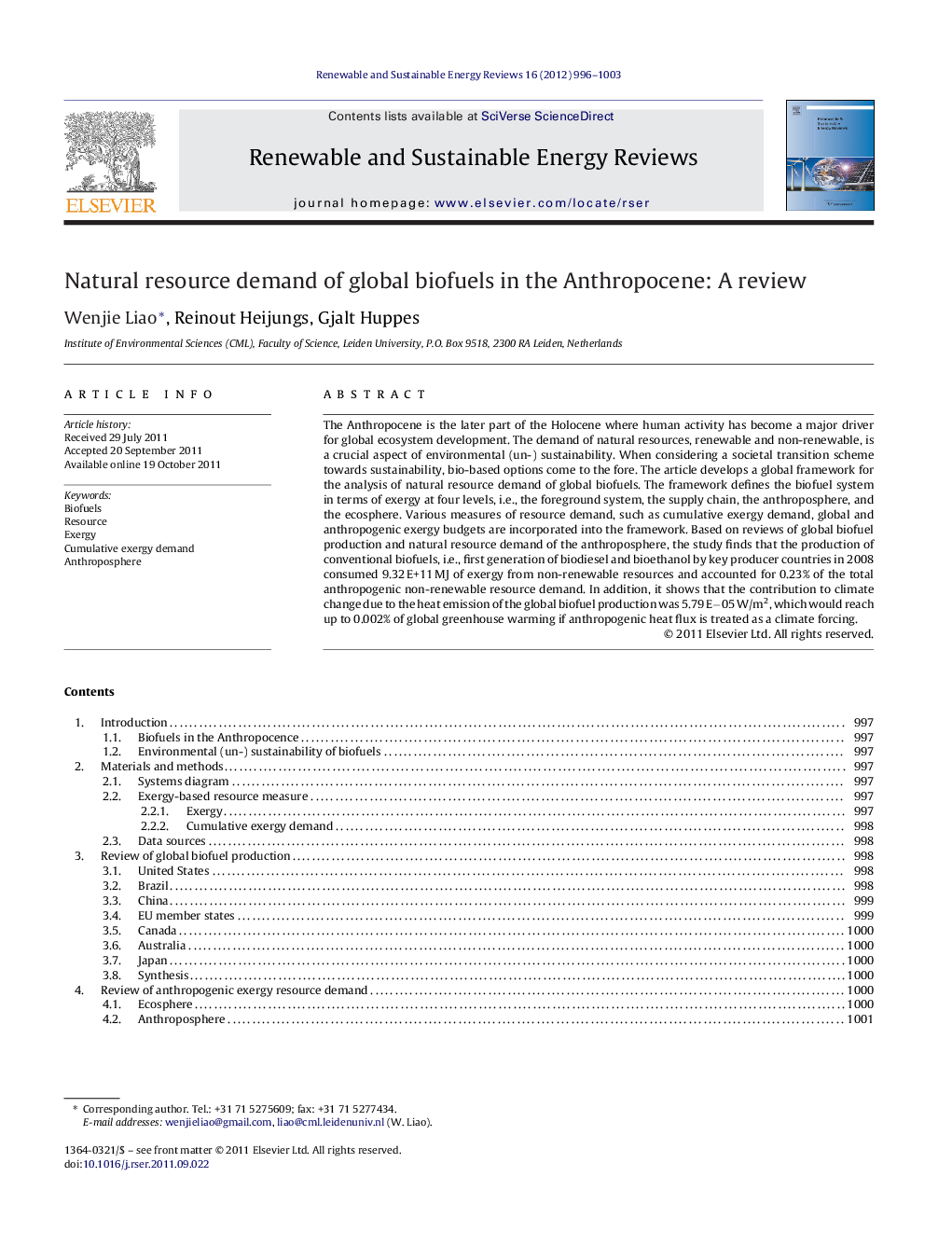| Article ID | Journal | Published Year | Pages | File Type |
|---|---|---|---|---|
| 1751320 | Renewable and Sustainable Energy Reviews | 2012 | 8 Pages |
The Anthropocene is the later part of the Holocene where human activity has become a major driver for global ecosystem development. The demand of natural resources, renewable and non-renewable, is a crucial aspect of environmental (un-) sustainability. When considering a societal transition scheme towards sustainability, bio-based options come to the fore. The article develops a global framework for the analysis of natural resource demand of global biofuels. The framework defines the biofuel system in terms of exergy at four levels, i.e., the foreground system, the supply chain, the anthroposphere, and the ecosphere. Various measures of resource demand, such as cumulative exergy demand, global and anthropogenic exergy budgets are incorporated into the framework. Based on reviews of global biofuel production and natural resource demand of the anthroposphere, the study finds that the production of conventional biofuels, i.e., first generation of biodiesel and bioethanol by key producer countries in 2008 consumed 9.32 E+11 MJ of exergy from non-renewable resources and accounted for 0.23% of the total anthropogenic non-renewable resource demand. In addition, it shows that the contribution to climate change due to the heat emission of the global biofuel production was 5.79 E−05 W/m2, which would reach up to 0.002% of global greenhouse warming if anthropogenic heat flux is treated as a climate forcing.
